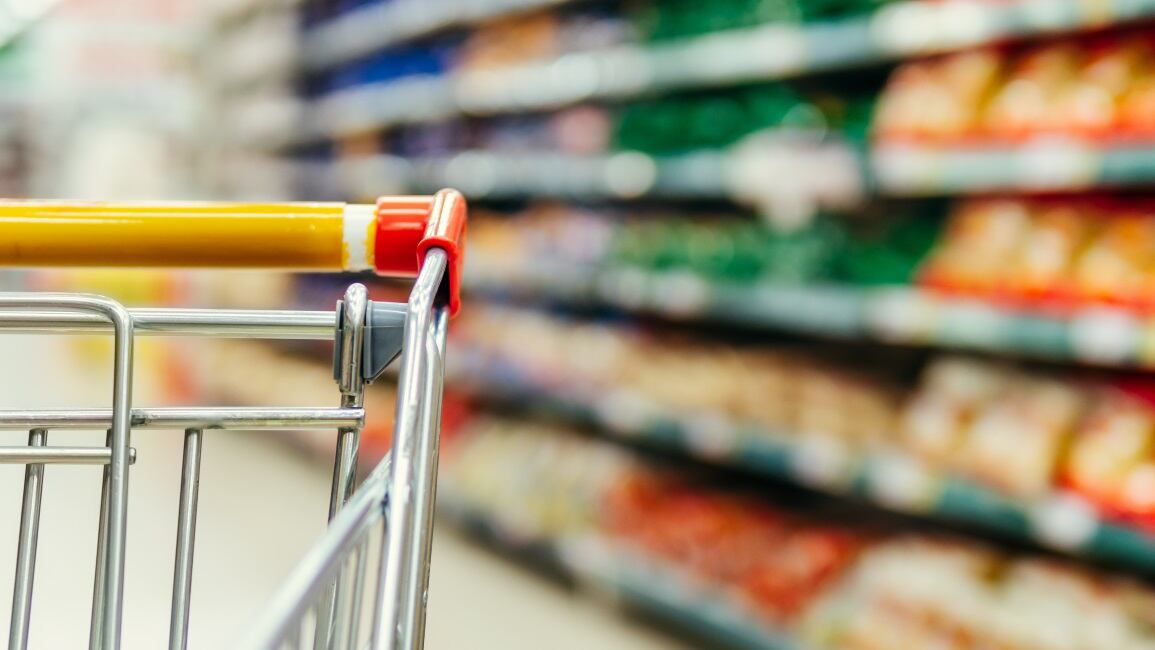Within the space of a few short weeks, businesses have seen sales decimated and cashflow abruptly interrupted as novel coronavirus, or COVID-19, has swept the globe. And while scenes of empty shelves as shoppers stock up on essentials might suggest the grocery sector is relatively resilient, many small and medium sized businesses would beg to differ.
According to Young Foodies, challenger brands - the segment that has been driving majority growth in the market for several years - are in ‘crisis’.
A survey recently conducted by the business hub spells out the scale of the problem. Respondents, representatives of businesses with revenues of between £250k and £12m per year, said current challenges are a ‘threat to the survival’ of their businesses. Indeed, a massive 73% said that staying afloat is a concern and almost half – 47% - said there was a ‘real possibility’ their businesses would fold.
The average projected loss in revenue in 2020 plans, for those that felt capable to estimate it at this stage, stood at 33%.
The collapse of hospitality
Outlining the challenges, respondents pointed to heavily reduced cashflow that has resulted from the collapse of hospitality and out-of-home (OOH) sales.
“It is a nerve-wracking time for the industry and the uncertainty is arguably higher than Brexit,” warned Theadora Alexander, co-founder of Young Foodies.
On average, the brands surveyed reported 27% of their revenue was generated in OOH, which is now at a revenue standstill, while 25% of them rely on OOH for more than half of their revenue.
Ahead of the coronavirus crisis, around 40% of food was eaten out of home in the UK. The introduction of social distancing measures and – this week – a full lockdown has seen this channel ground to basically zero. Pubs and restaurants have been told to close and are only able to operate as takeaways.
“All the challenges felt in hospitality right now are being mirrored in all their suppliers. And for suppliers it’s their livelihoods at stake, not only their businesses. Our members have already seen lost revenues and this will continue, driven by the high-street closing down,” Alexander told FoodNavigator.
Supermarkets focusing on big brands and essentials
Big retailers, on average, account for more than 50% of sales among Young Foodies members. But while large brands are reporting ‘Christmas-like’ sales surges as stockpiling consumers fret over the possibility of long periods of self-isolation, the picture is decidedly different for challenger brands.
“The biggest hurdle right now is retailers, supply chains and manufacturers de-prioritising small businesses in an effort to focus on the 80-20. This is dangerous territory,” the Young Foodies co-founder cautioned.
Alexander suggested that now, more than ever, small food makers need the support of the supermarkets. “We are urging retailers to not only prioritise small brands but hero them. Pushing them to the bottom of the pecking order could cause irreparable damage to their already limited cashflow. Small brands who don’t have the cash reserves to ride huge change become vulnerable.”
She said that initiatives like Morrisons' move to introduce early payments for small suppliers with a turnover of up to £1m to help offset the impact COVID-19 were welcome. "We ask that all retailers follow suit with similar crucial gestures.”
However, the need to maintain the supply of essentials when demand is booming and supply chains are being disrupted meant that just this week many small brands reported sales dropped by 75%, with orders being cancelled while already in transit.
This situation has been ‘made worse’ by the news that Ocado – usually a champion of small brands – is stopping buying non-essential products as it responds to spiking demand for its online ordering and home delivery model.
Small brands across different categories are seeing varying amounts of pressure. Crisps, snacks & nuts, confectionery and soft drinks are the most at-risk categories for de-prioritisation, according to Young Foodies, which represents over 1,000 food and drink challenger brands.
In contrast, if products are seen as a staple or health product, they may make it into the stockpiling consumers' basket.
‘The mental stamina of food founders is inspiring’
Alexander said that the owners of small businesses remain resilient in the face of adversity. “Challenger brands have lived, breathed and evidently thrived through risk and volatility for years so their response right now is to focus heavily on preparedness and maximising cashflow,” she revealed.
“They are working round the clock to navigate the new complexities and create new DTC channels to ease their reliance on bricks and mortar sales. They are working closely with Young Foodies to build crisis mitigation plans, design remote working strategies and reduce cashflow interruptions.”
The crisis has prompted many SMEs to embrace e-commerce channels more quickly, with a 'pivot to online'. Meanwhile, some brands are already moving marketing spend from sampling, events and activations (that have been postponed over coming months), into online advertising and 'connecting' more with their consumers through digital channels.
According to Young Foodies, its members see online channels as much more of a level playing field than grocery, where staff shortages and pressures are putting a strain on in-store merchandising, and with more 'panic' from buyers in physical stores than online.
Alexander paid tribute to the grit on display at the SMEs with whom he works. “Despite livelihoods being at risk, the mental stamina of brand founders to triumph in the face of this adversity is nothing short of inspiring,” she told this publication.
“They are being highly proactive and innovative in their approach, from switching marketing efforts to e-commerce to nurturing high care supply chains despite having little control over them. Founders are exploring innovative ways to reach consumers quickly by re-working their entire channel.”
A plucky attitude might not be enough...
But a bitter pill the industry is being forced to swallow is that no amount of innovative spirit and courage may be enough to safeguard small businesses against the devastating economic implications of the coronavirus pandemic. For this reason, Alexander believes further government intervention may be needed.
Last week, Chancellor Rishi Sunak unveiled a £350bn support package that policymakers hope will act as a lifeline for the economy. Alexander ‘welcomed’ the focus given to the hospitality sector but added: “I urge the government to consider how the support can be spread upstream.”
She highlighted a ‘credit risk’ that customers such as airlines and foodservice suppliers could fail to pay their suppliers, with pub chain Wetherspoons already reportedly withholding supplier payments. “Failure to pay will put SMEs out of business. We need to know whether the government will support this,” Alexander stressed.
“With working from home now a requirement, we are also calling government for temporary office rental freezes, as this is another drain on cashflow whilst not being utilised. Finally, we want to see a longer-term plan to help SMEs recover from major revenue loss and manage loan repayments.”
Young Foodies is calling for the government to provide ‘instant relief’ to struggling small food and beverage brands. It is also urging retailers to continue to support and stock these products. Consumers can make a difference too, by making ‘simple switches’ and favouring independent businesses over large corporations.




